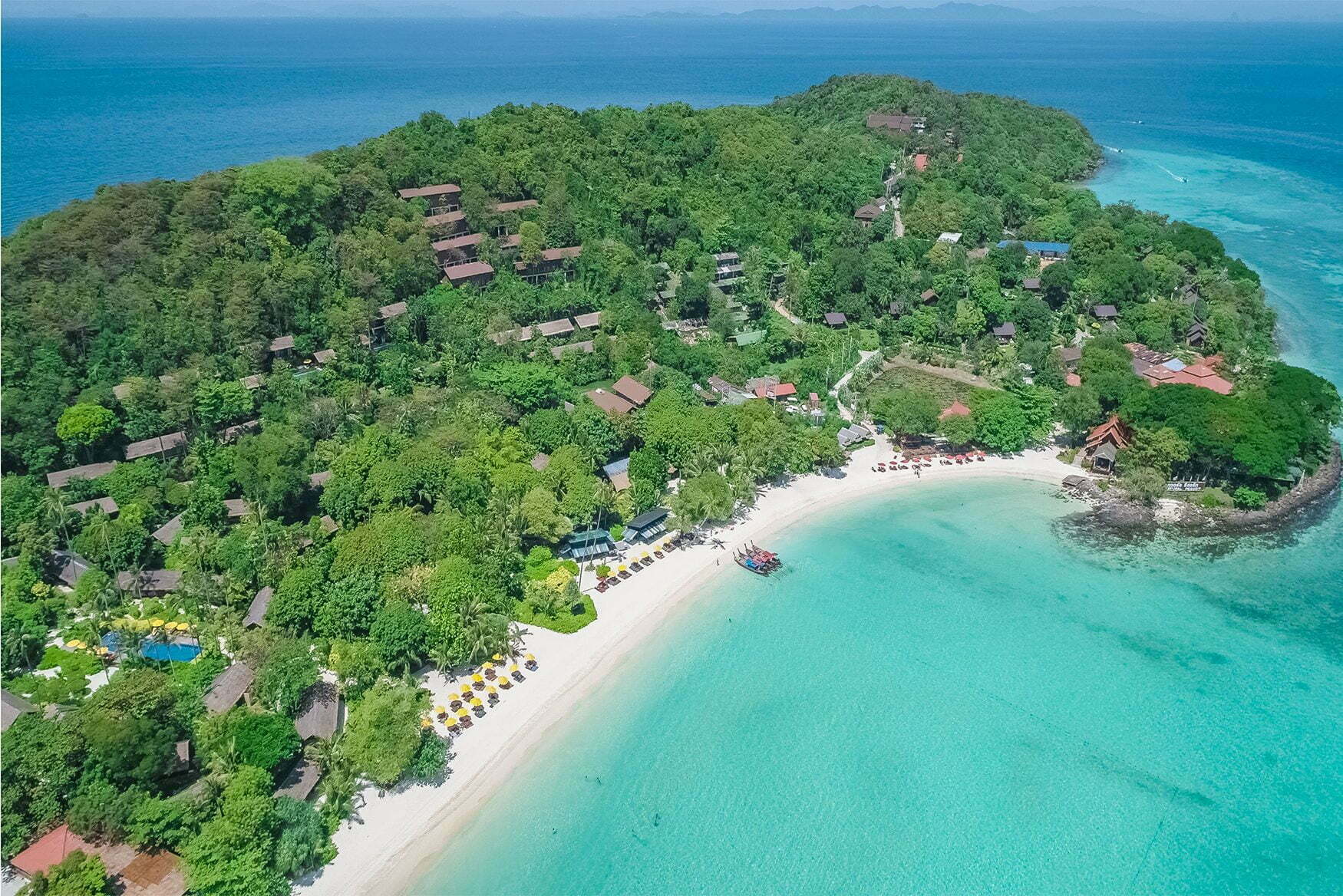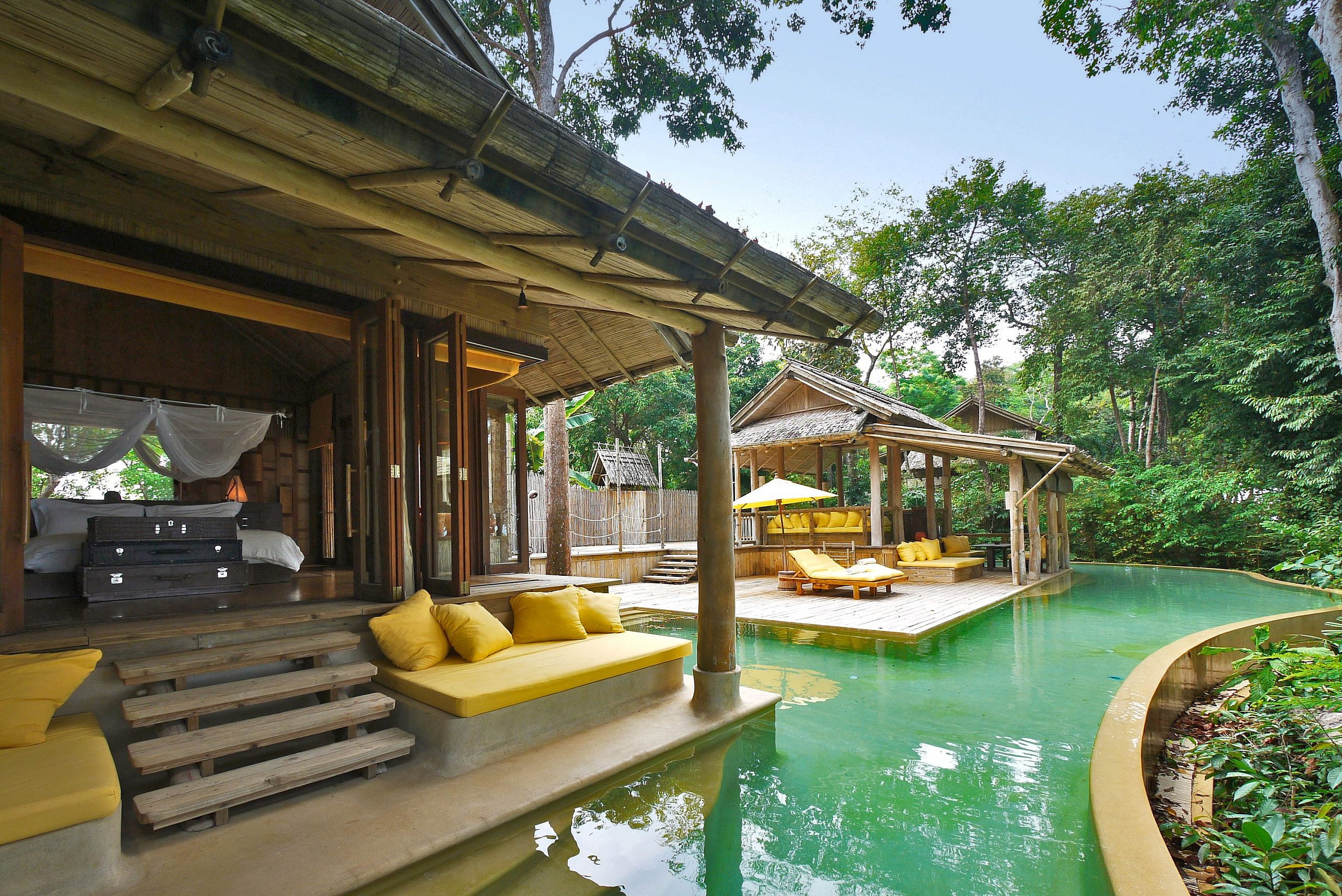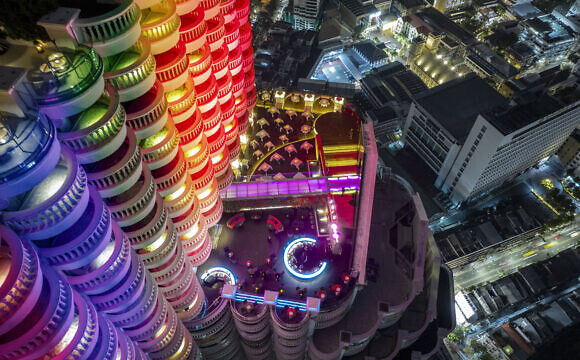The recent Responsible Thailand Awards, organised by the Tourism Authority of Thailand and UK-based publisher Wanderlust Travel Media, celebrated some of the new innovations and outstanding practices that have helped to make sustainability a watchword in upscale tourism.
Zeavola Resort won the Best Hotel category thanks in part to its Little Green Book that won over the judges for its comprehensive approach to responsible tourism. Written by the resort’s general manager, Florian Hallermann, the 42-page book is a down-toearth
primer on how and what “responsible hoteliers can do to make a positive difference through reducing, reusing, recycling, respecting nature and listening to local communities", he said.
Zeavola’s setting on Laem Tong Beach in the Phi Phi islands of southern Thailand is intended to conjure the ambience of a tropical fishing village from yesteryear. The teakwood suites and villas overlook a panorama of sea and sky, foregrounded by a stretch of sand that lulls the harried urbanite into a state of serenity.
In the field of sustainability, it’s the little changes that add up to big deals. As Hallermann pointed out, replacing the plastic packaging on deliveries that come from the mainland saves the resort some 260kg of waste per year. Installing water refilling stations throughout the resort has cut the number of single-use plastic bottles by 120,000 per year.
The Little Green Book discusses such achievements in more depth, but also opens up a few other cans of worms, like how to turn wet waste into compost. In ways like this, the resort promises a responsible, clean and green beach getaway that still comes with Wi-Fi, flat-screen televisions and air-conditioning.
Carbon-Unfriendly Resort
Soneva Kiri won the The Best Eco-Lodge/Eco-Hotel category in what the judges described as “an easy and unanimous decision. Soneva Kiri really is making a huge difference through its ongoing work to be as environmentally friendly as possible and in its commitment to fighting climate change. Indeed, they are making a positive impact in many areas, not least through reforestation and in reintroducing hornbills to Ko Kood."
The judges also praised the five-star resort for developing the Soneva Carbon Calculator, which measures the shape and size of its entire footprint, such as air and ground travel, energy usage, waste, water, food and paper. That means the staff have a complete picture of its operations, which can then be streamlined for maximum efficiency and minimal harm to the environment.
One of the challenges and contradictions of responsible tourism is how to balance being responsive to ecological concerns while also being responsible for your guests’ needs and thirst for adventure.
In the case of Soneva Kiri, situated on Koh Kood in the Gulf of Thailand, the resort offers a number of activities, such as scuba-diving, star-gazing at the observatory or watching an outdoor movie at Cinema Paradiso, where nature plays a starring role.
Soneva Kiri also racks up plenty of originality points for its child-specific activities. At Den, a gigantic manta ray-shaped structure made out of bamboo, instructors nurture creativity in their charges by exposing them to visual arts and Thai musical instruments. At Eco
Den, which is for younger children, childcare experts lead the games and activities, designed to teach the importance of conserving the world’s flora and fauna.
Splendid Isolation
For a shining example of how to combine style with sustainability look no further than Kudadoo in the Maldives. Its solar panels have helped to make Kudadoo the first luxury resort in the archipelago that is completely sustainable.
The resort was designed by Yuji Yamazaki, who owns the New York architectural firm named after him.
In realising his vision of a minimalist design that reflects his Japanese sense of less-is-more aesthetics, he faced a number of challenges. For one, on such a sandy speck of an island, how could he give guests the sense of getting away from it all if there were too many other visitors around?
The answer was to build 15 villas over the water in a circle that would allow guests to enjoy a sense of privacy, if not splendid isolation. Measuring 300sqm to 380sqm, the villas are large enough to avoid guests catching a case of cabin fever.
What’s really captivating about the villas is the way that sustainable hardwoods have been used to make them eco-friendly and homey.
That sensibility carries over into The Retreat, the resort’s locus, where wooden furniture, panelling and roof beams contribute to a Zen vibe that soothes shot synapses.
In this way, resorts in the Maldives like Kudadoo, the recently reopened Gili Lankanfushi, noted for its coral conservation programmes, as well as the new Soneva Fushi, set to open in April, are bringing a rich sense of contemporary design elements to these properties, which harmonise with all the green safeguards, in a delicate balancing act that emulates Mother Nature.










